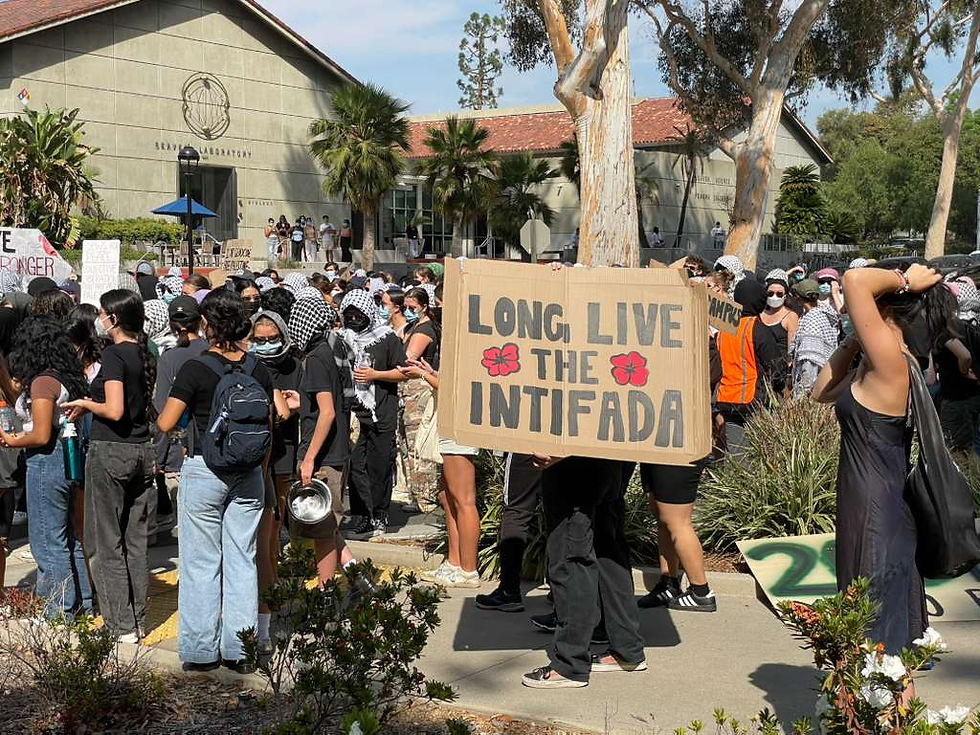As CS Dept. Strains, Low-Demand Majors Awash in Professors
- The Claremont Independent

- Nov 17, 2017
- 3 min read
A student petition is asking Pomona College—one of the member institutions of the Claremont Colleges—to hire more computer science faculty in order to manage the drastic increase in the number of computer science graduates over the last few years.
In the meantime, however, unpopular and unemployable majors, such as Africana studies and gender studies, are awash with tenured faculty members.
According to the petition, the amount of majors in computer science has increased tenfold in the graduating classes over the past six years—from six to 60 students—while tenure-track faculty has only increased from four to seven over the same time period, not counting faculty on leave.
As a result, many computer science students “face significant enrollment pressure put many majors in danger of not graduating because students with earlier registration slots had grabbed all of the available slots.”
A lower faculty-to-student ratio has also increased class sizes, the petition states: “To accommodate our increased enrollment, we have been increasing class sizes. The average class size at Pomona is 15, yet we have been teaching introductory level courses with enrollments typically in the upper 30s, 40s, and even low 50s.”
While popular and career-ready disciplines, especially computer science, have seen ballooning class sizes with limited response from the college, Gender & Women’s Studies and ethnic studies departments at Pomona are awash with tenure-track professors.
Africana Studies, which only graduates around 2-3 majors a year—less than 5% of of the 60 students computer science will be graduating this year—boasts eight tenure-track faculty members, drawn from various disciplines, at Pomona alone, according to the department’s website. Those figures give Africana Studies approximately a twenty-five fold advantage over computer science in terms of faculty to majors graduated.
Similarly, Gender and Women’s Studies (GWS) at Pomona College has four tenure-track professors listed as faculty, along with 21 professors listed as “affiliated faculty.” Meanwhile, GWS graduates only approximately three majors a year, and is one of the most unemployable fields measured by salary.
When the Independent reached out to Professor Yuqing Melanie Wu—the computer science department head—about low faculty numbers in comparison to other departments and its effects, Wu pointed to a private proposal that the computer science department submitted to Pomona College’s Faculty Position Advisory Committee (FPAC).
In the proposal, the computer science department cited a pressing need to keep up with enrollment in computer science classes, as well as large class sizes—of which “1/3 of all CS lectures have more than 40 students [much larger than Pomona’s average lecture size]”—as affecting teaching quality.
According to the proposal, the department “worr[ies] that the lack of personal attention [due to lack of faculty] has a negative impact on students overall, and particularly students from URM [underrepresented minority] groups.” The number of students is also constrained by physical space available in the computer labs.
Computer science students at Pomona seem to agree that more CS faculty are desperately needed, citing the impact of the small faculty on their educational experience.
Levente Papp (PO ‘20), a sophomore computer science student—told the Independent that “[m]any of us [students] decided to come to a liberal arts college because we were hoping to have a more personal learning experience here, but this is in danger now. Personally, I don’t mind having 40 or 50 students in a lecture, but when you [as a major] can’t get into your desired classes and when you can’t get the necessary help in office hours or mentor sessions because of the number of students, that’s a problem.”
Computer science as a discipline also requires a favorable faculty-to-student ratio, according to Papp: “Learning CS involves a lot of trying and failing, so it would require a good amount of close mentoring, which is now being compromised due to the decreasing faculty-to-student ratio.”
The computer science department’s proposal to the college’s FPAC also highlights the impact of “the sense of belonging of many students” in larger classes, which “usually has a more significant impact on women and URM students.”
While both the petition and the department’s proposal to the FPAC ask for more full-time tenure-track faculty in the light of phased retirement of two faculty members in the next two years—bringing down the number of tenure-track computer science faculty to four, the same number as Gender and Women’s Studies faculty—and with the proposal explicitly stating that tenure-track faculty ared need to “function as a healthy academic unit,” it remains to be seen whether the college will fulfill those requests.
.png)



Comments